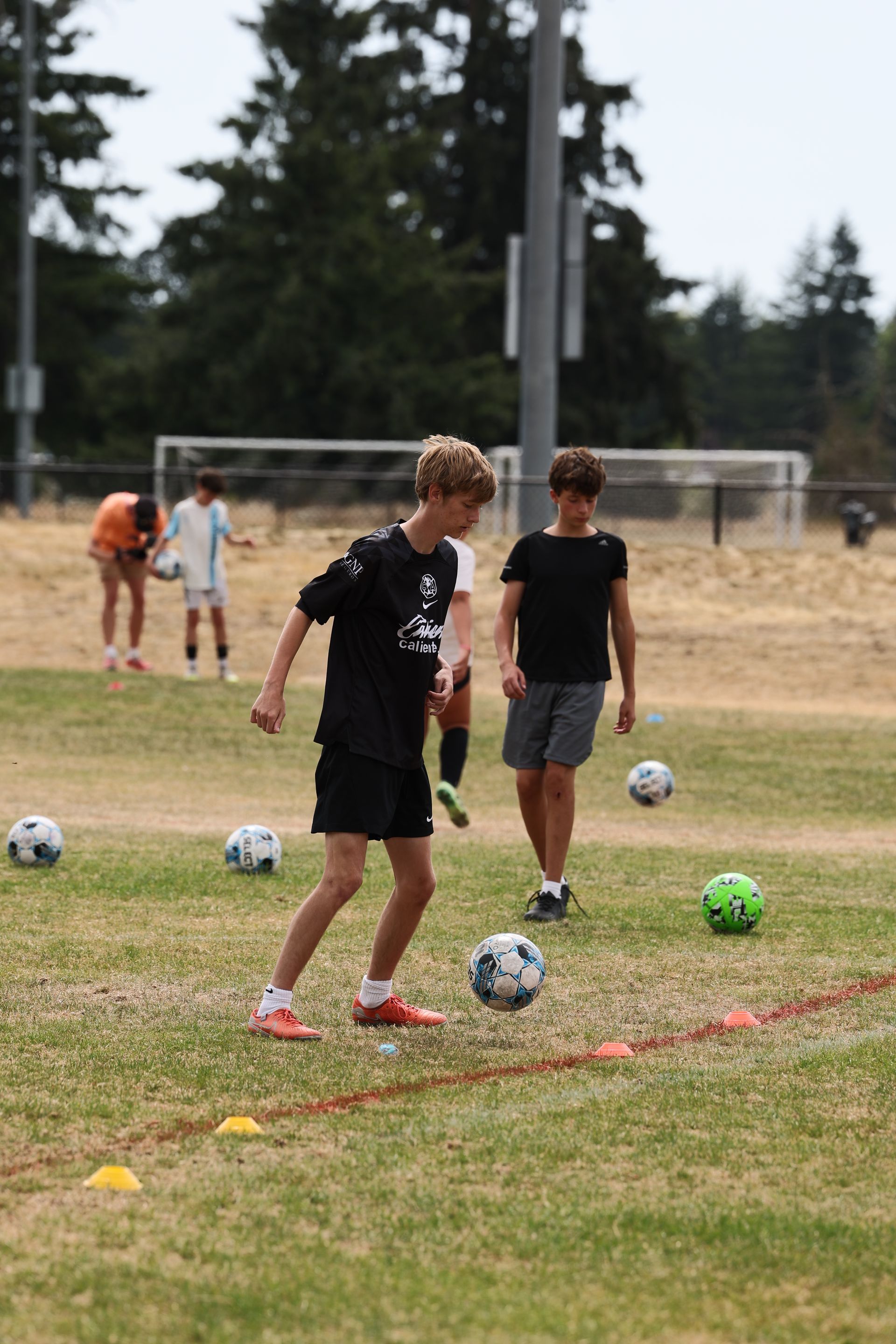September 12, 2025
“Consider it a great joy, my brothers and sisters, whenever you experience various trials, because you know that the testing of your faith produces endurance.” — James 1:2–3 In the competitive world of youth sports, criticism is unavoidable. From coaches, teammates, parents, or even from themselves, young athletes are constantly hearing feedback—sometimes constructive, other times harsh. While criticism can discourage and even wound an athlete’s confidence, it also provides a powerful opportunity for growth. As Christian coaches, we are called to help athletes filter criticism through a biblical lens—one that teaches resilience, humility, and reliance on God. When athletes learn to handle criticism in light of Scripture, they not only become stronger competitors but also deeper disciples of Christ . Understanding the Emotional Weight of Criticism Criticism, especially in formative years, can cut deeply. Negative feedback often leads to self-doubt, anxiety, or fear of failure. Proverbs 12:25 reminds us, “Anxiety in a person’s heart weighs it down, but a good word cheers it up.” Left unchecked, criticism can damage confidence and motivation. But when guided properly, athletes can learn to reframe criticism as a stepping stone toward growth rather than a stumbling block. One key to this transformation is developing emotional intelligence. Athletes who can identify their feelings, regulate their responses, and empathize with others are better equipped to process criticism in healthy ways. Coaches can foster this by encouraging open conversations, validating emotions, and helping athletes find constructive takeaways in every critique. When young athletes learn that their identity is secure in Christ, the sting of criticism loses its power. Teaching Athletes to Reframe Criticism Criticism becomes productive when athletes learn to see it through the lens of growth. Ecclesiastes 7:5 says, “It is better to listen to rebuke from a wise person than to listen to the song of fools.” Not all feedback is pleasant, but much of it can sharpen character and performance if received with humility. Practical steps for reframing criticism include: Self-reflection : Instead of reacting defensively, ask, “What can I learn from this?” Growth over perfection : Mistakes are not final—they are opportunities to improve. Anchoring in Scripture : Remind athletes that God uses challenges to shape perseverance (Romans 5:3–4). By teaching athletes to respond with humility and reflection , coaches help them grow both in their sport and in their faith. Biblical Models of Resilience The Bible is filled with men and women who faced criticism yet persevered with faith. David endured accusations and doubt from his own family before facing Goliath (1 Samuel 17). His courage came not from others’ approval but from confidence in God. Job faced ridicule from friends during his suffering, yet remained steadfast, declaring, “But I know that my Redeemer lives” (Job 19:25). Paul often faced harsh criticism from the early church and persecution from authorities, yet he pressed on, reminding believers that God’s grace is sufficient (2 Corinthians 12:9). These examples remind athletes that criticism is not a barrier but an opportunity to trust God more deeply. Just as these biblical figures found strength in the Lord, so too can young athletes when faced with discouragement or correction. Creating a Supportive Coaching Environment A coach’s words carry tremendous weight. Proverbs 18:21 says, “Death and life are in the power of the tongue, and those who love it will eat its fruit.” Coaches must therefore create a culture where feedback builds up rather than tears down. Ways to foster this environment include: Encouraging effort, not just results : Celebrate hard work, perseverance, and teamwork. Promoting open dialogue : Allow athletes to share how they feel about feedback. Setting clear expectations : Clarify what constructive criticism looks like. Balancing correction with encouragement : For every critique, offer words of affirmation. When athletes know their coach values their growth over perfection, criticism becomes a tool for development rather than a source of fear. Integrating Faith into Handling Criticism Faith provides the anchor athletes need when faced with discouragement. Colossians 3:23 reminds us, “Whatever you do, do it from the heart, as something done for the Lord and not for people.” Criticism, then, becomes less about pleasing others and more about honoring God with our best effort. Practical ways to integrate faith include: Encouraging athletes to pray after receiving criticism, asking God for wisdom and peace. Using devotionals to reflect on verses that address perseverance and humility. Reminding athletes that their identity in Christ is unshakable, regardless of performance. When athletes learn to process criticism through Scripture, they can move forward with confidence rooted in God’s truth. Sports Psychology Tools Through a Biblical Lens Sports psychology offers useful strategies like visualization, positive self-talk, and mindfulness. When paired with Scripture, these tools become even more powerful. Visualization : Encourage athletes to picture themselves responding to criticism with grace and applying corrections successfully. Positive self-talk : Replace negative thoughts with biblical affirmations such as, “God is my helper; I will not be afraid” (Hebrews 13:6). Mindfulness : Teach athletes to pause, breathe, and reflect on God’s presence before reacting emotionally. By combining practical techniques with biblical truth, athletes learn to manage stress, maintain focus, and build resilience. Fostering Spiritual Growth Beyond the Game Ultimately, handling criticism biblically is not just about sports—it’s about discipleship. Athletes who grow in resilience, humility, and faith will carry those qualities into school, relationships, and future challenges. Coaches who faithfully model these lessons leave a lasting impact far beyond the playing field. Philippians 1:6 offers a promise to every athlete: “I am sure of this, that he who started a good work in you will carry it on to completion until the day of Christ Jesus.” Criticism is not the final word—God’s refining work is. Coach’s Heart Check Do I balance correction with encouragement when giving feedback? Am I pointing athletes back to God’s truth when they face discouragement? Do I model humility and grace when I receive criticism myself? How can I use Scripture to help athletes see criticism as an opportunity for growth? Living with Grace and Growth Criticism can be painful, but through a biblical lens it becomes an instrument of growth. When young athletes learn to filter feedback through God’s Word, they gain resilience, humility, and a deeper reliance on Him. Coaches play a crucial role in this process by fostering supportive environments, teaching biblical principles, and modeling grace in their own leadership. Hebrews 12:11 reminds us, “No discipline seems enjoyable at the time, but painful. Later on, however, it yields the peaceful fruit of righteousness to those who have been trained by it.” By helping athletes process criticism in faith, coaches prepare them not just for the next game, but for a lifetime of walking with Christ.













